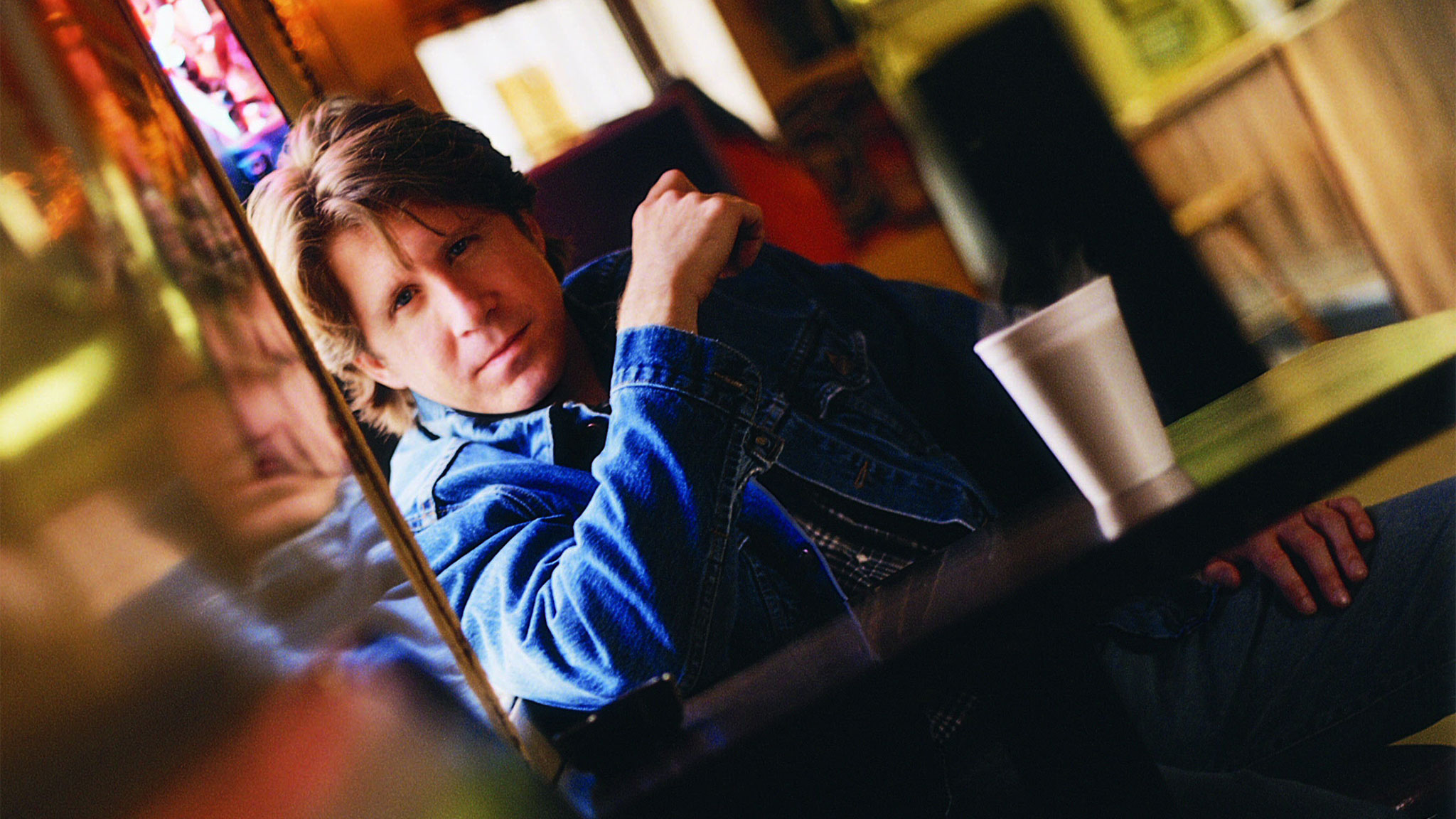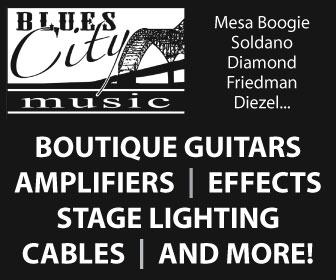John Eddie
An Introduction To A Musician Who Doesn't Need One

The title of John Eddie's latest CD, "Who the Hell is John Eddie?", could be a metaphor for the troubles of the music industry as a whole: a talented singer/songwriter pouring out his heart and his art on stage is abruptly shot down by a disinterested patron looking to hear some classic Southern rock. The redneck ends the heckle with his dismissive question. The answer is far more complex.
Born in Virginia, Eddie transplanted to New Jersey in the early 1980s and quickly became a popular figure along the Jersey Shore scene. His local popularity grew as his band, the Front Street Runners, joined the famous list of house bands at the legendary Stone Pony. Signing with Columbia Records in 1986 and releasing two albums, "John Eddie" and "The Hard Cold Truth", he built on his reputation as a dynamic and exciting live performer. While both albums produced songs that are still popular parts of his live set, and produced one hit single, "Jungle Boy", they didn't sell well-enough for Columbia to renew his contract and it was allowed to lapse.
He signed with another major, Elektra Records, and went through the process of recording an entire album, only to be abruptly and inexplicitly dropped before the album was ever released. After taking a break from touring, Eddie returned with three independently-released discs, "Seven Songs Since My Last Confession", "Happily Never After" and "Guy Walks Into A Bar", the later record a live album that showcased his songwriting talents in the forum which it is most powerful, on the stage in front of a crowd of the rock 'n' roll faithful.
Packing clubs and rock venues around the country, Eddie's shows bring out scores of fans, urging them all to "grab a cocktail" and sing along with tunes that have the spirit of 1950s rockers, barn-burning rockabilly and 1970s Jersey Shore rock and roll, with enough blues and country influence thrown in to confuse radio station program managers everywhere.
To call "Who The Hell Is John Eddie?" autobiographical may not quite be accurate, and certainly too simplistic. It's more biographical, and an unauthorized biography at that. It's as if he's writing about his life as other people might see it, with a few editorial corrections. Eddie swaggers around the stage proudly boasting of being a low life ("I got kids I've never seen / And their momma's seventeen / I'm a low life"), while in the next breath he's the jilted lover pining away for the girl he loves ("Only time I miss her is / Every single night / Honey, don't you want to come home?"). One moment, he acknowledges his ambitions as a musician and performer ("Last night God came to me / in a dream / He said, "Here you go, son," / Here's the secret of life. / Now go out tonight / Spread paradise.") while confessing to his own doubts about the path he's taken ("Sometimes I feel foolish / I make my living singing in this band.")
The key to Eddie's popularity, and the testament to his skill as a songwriter, lies in his sincerity as a musician which comes across on stage and through the speakers, while at the same time there is a clever smirk that lets you in on the joke. While he might not have claimed any of the next this or next that titles thrown his way over the years, most fans who have come to his shows over and over again probably have a hard time believing that he's really served time playing in dive bars to drunks who couldn't care less.
A lot of press surrounding Eddie's latest album has tried to figure out the secret to his staying power. Part of answer is that he possess a keen mind for the business. He understands how the industry works, for good and bad, and what brings people out to spend an evening at a dark club on a Saturday night. Those people know his music and can sing along well enough that Eddie and the band sometimes drop out entirely and let the floor take over. He's created a strong connection with his audience, which is the most difficult challenge that faces any artist.
JE made time during a exhausting touring schedule to answer these questions for Chorus and Verse. Some of the jokes are a little inside. But, buy the album and read the lyrics and you'll get 'em, we promise. We also promise that every single word below is the hard, cold truth. Well, except for all the lies.
"Who The Hell Is John Eddie?" is being promoted like a major album release, and the press is hailing it as a resurgence for you. What happened over the past couple of years to make this happen? Who made the decision that this wouldn't be just another album release, but a major push to reintroduce John Eddie to the music world?
This album's getting a little more attention mainly because it was being released by Lost Highway, which is a cool label with cool artists. So, I think some people were surprised to see me resurface on it. I had put out a few CDs on my own, but was really only selling them at shows and on our web site. So this one has a little higher visibility; but, don't worry, I will sink into obscurity soon enough to start the whole process up again.
You're almost being treated as if this were a debut album. Do you feel as if you're a new kid on the block, even eight years after your original debut album? How does it feel to be mentioned on "Best New Artists" lists?
I think, artistically, I feel like a new artist; press-wise, it sounds better to say "John Eddie's Lost Highway debut" than to say "John Eddie's 7th in a series of commercial flops."
Back in the 80s, I actually had the surreal pleasure of Don Henley saying to me: "so, you're the new kid on the block." He was on my paper route. This was right after "Jungle Boy".
You must be pleased with how things have worked out so far with Lost Highway. After releasing three albums on your own label, how did you hook up with Lost Highway, and was there any hesitation in your mind about ceding back control you had with your own indie label?
The whole Lost Highway thing came about because of my manager, Michele Clark. We were looking for a distribution deal for our label, Thrill Show, which basically had the same blueprint as what would become Lost Highway. When we met with Luke Lewis, the president, Lost Highway didn't exist yet; our deal was supposed to be through Mercury Nashville. Then, Lost Highway kinda sprung up and they let us put the record out through them.
As far as ceding control, I'm a ceding control freak. I have to cede absolute control or I'm unhappy.
You've gone through the major-label wringer when you were with Columbia. Do you appreciate a label like Lost Highway more having gone through that experience? When signing with Lost Highway and going through the process of producing the album, are there lessons that you learned from your past experience that came in handy?
Columbia wasn't really a major label wringer; the people there actually gave me a shot. Elektra was a major label wringer; that was torture.
As far as any lessons I've learned: as soon as they put a contract in front of me, my eyes glaze over and I just want to be the next Rick Astley.
"Who the Hell Is John Eddie?" was recorded last summer at Ardent Studios in Nashville. Talk about those sessions; how long did the recording take, what was the mood in the studio and did you enjoy the whole process? Did you have to overcome any pressure when you first hit the studio that this album had to be successful, or were you able to relax?
Recording in Memphis with Jim Dickinson at Ardent was a dream. Everything went smoothly. No pressure. And, like any dream, you wake up and have to deal with going to work, and that's what we are doing now; hitting the road and trying to bring the dream to the people. Wow. What a deep, ridiculous quote.
PK Lavengood and Kenny Aaronson have been the foundation of your band for a long time. How have you managed to keep them around so long? Do you have some sort of pictures of them they don't want anyone to see?
I'm lucky to have kept PK and Kenny as long as I have. I count my blessings every night on stage with the band I have.
But musicians are kinda like stray cats; you feed 'em once and they keep coming around. I'm sure if someone fed them more vittles they would abandon me. But, for now, I rub their ears and they do that weird thing with their feet on my chest.
How do songs normally develop with the band? You've said that you write all the time, often just hanging in your bedroom. Do you usually bring basic chords and lyrics to the other band members, and they add their parts, or do you have drum beats, bass lines and so forth in your head from the beginning? How much do such talented musicians, such as you have, add to your initial song ideas?
Everything you hear comes from me. I'm a musical genius. It's kinda like a Prince situation where I play all the instruments and then rehearse the band for hours while they try in vain to capture my magic.
Or ...
I'm barely adept at playing guitar. Throw a couple of chords together, hum a slight variation of "Three Blind Mice", and see what happens.
Somewhere between those two.
The newer members of the band are guitarist Kenny Vaughan and drummer Kenny Aronoff. How did you meet these two musicians and get them into the band? Why did you want to add a third guitarist to the group, and how did having a third change the way the songs are arranged?
Well, first of all, the two new Kennys you mention are only on the CD.
I met Aronoff back in the 80s when he was with Mellencamp and he played on my second album. Mr. Vaughn I met when he was playing in Lucinda Williams' band. I'm a huge fan of both and they were responsible for a lot of how smoothly everything went in Memphis.
In my live band, their shoes are filled quite ably by Gary Gold on drums and Mister Bart Weilberg on guitar. The extra guitar frees up my drinking hand.
The album was produced by Jim Dickinson. How did working with Dickinson differ from past producers you've used, and affect the sound on the album? Are you easy to work with in terms of taking advice and suggestions in the studio?
Dickinson is a world-class producer who makes you rise to the occasion. You respect him from the get go and you want to make him proud, or at least I wanted to. I think the band felt the same way.
T-Bone Wolk also produced two tracks on the CD and was responsible for a lot of the preproduction on the whole record. It was the perfect team as far as I'm concerned.
Me, I'm pretty good at taking advice in the studio. In fact, because of some of the advice I got in making this record, I've cut back on my carbs and I've managed to cut my credit card debt in half. Now, I'm trying to work on being more open in my relationships with women and just letting me be me in group situations.
Another person that's been important to your career is your manager, Michele Clark, who started out as an underage fan sneaking into your shows. Thanks to your music, she left law school for her own radio-promotion business. Want to talk briefly about how Michele has affected your career, and take a moment to apologize to her for ruining her life?
Michele really did start out being a fan. She was part of a group called the T-Ville girls, from Turnersville, NJ. She was like 16 and traveling all over the country following us around. She's a true music fan. She's also turned into a great manager and a great friend. She fights for me and it makes me want to work harder because she cares as much as I do. And I know managing me is hard on her and her family because she has to come out on the road a lot with us. So, I owe her and her husband and kids a lot.
Her main job is she runs a radio promotion company, and because of her we've gotten a lot more exposure on radio. We've played a lot of conventions in front of a lot of the programmers and that's helped a great deal as far as them knowing who we were when our CD finally came out.
As far as apologizing for ruining her life; love means never having to say you're sorry.
One of the songs on the new album, "Forty", has been a favorite among your live audiences, but sounds like a song written off-the-cuff that became a hit. What was it like when you first sang that song for an audience, and were you surprised at how people related to it so quickly?
"Forty" is an ice breaker for us when we open up for a crowd who isn't all that familiar with us. Someone is always turning 40 or knows someone who is.
I wrote it right before my 40th birthday. I played it, I think, for the first time at Martell's in Point Pleasant. It is a novelty song, but so far I'm not bored singing it.
It's going to be harder to pull off once the Rolling Stones are all actually dead in the next year or so. So I pray for their health every night.
The first single off the album, "Let Me Down Hard", has been getting tons of radio airplay across the country. Would you call it your most successful single since "Jungle Boy"? Why was that track selected as the first single?
"Let Me Down Hard", for its format, is definitely the most-played song of mine since "Jungle Boy". But "Jungle Boy" was a pop song, so it was on bigger stations, the Top 40 kind. But, I'm prouder of what we've accomplished with this record because it's more real.
Not sure why everyone thought it should be the first single. It might because it's one of the few songs that doesn't have the f word repeated over and over; which is kinda ironic, because the original title was "hey motherfucker let me down hard".
Is it still a thrill for you to hear one of your songs played on the radio? Despite all of the ups and downs, can you look back and consider your career a success to still be playing and performing, writing great songs, for this many years?
It's still a huge thrill to know a song of mine is getting played on the radio. I feel uncomfortable hearing it myself. I always hear what's wrong with it.
As far as a successful career, I'm lucky to be still out there. I'll always write songs and figure out ways to get them heard.
With all of the attention the CD's been getting, are things more fun for you now than they may have been a few years ago? When you go through a period like this when everything seems to be clicking, does it make you think that you could be making music at 50 or 60 years old?
I know it appears things are clicking now more than before, but it's still the same struggle. We're still trying to be heard, still staying in hotels far from home. But, we have fun, then we don't, then we do.
As far as making music when I'm 50 or 60, sure, as long as there are 20 or 30-year-old women who want to hear it.
If this album does have all of the success that some are claiming it will, do you think there's a chance that you might actually date Wynona Ryder? And, if so, where would you take her on your first date?
Winona Ryder, chances are pretty slim. For me to date her, I would have to be a scruffy, meticulously disheveled singer/songwriter of ill repute. I'm not scruffy.
Our dream date would either be the dollar store or something involving community service.
[ Website: www.johneddie.com ]

Matt Mrowicki founded Chorus and Verse in 2001. He is a rock star designer and technologist, Internet professional, content creator, and entrepreneur specializing in web development, IT consulting, branding, social media and online marketing. www.imprtech.com









